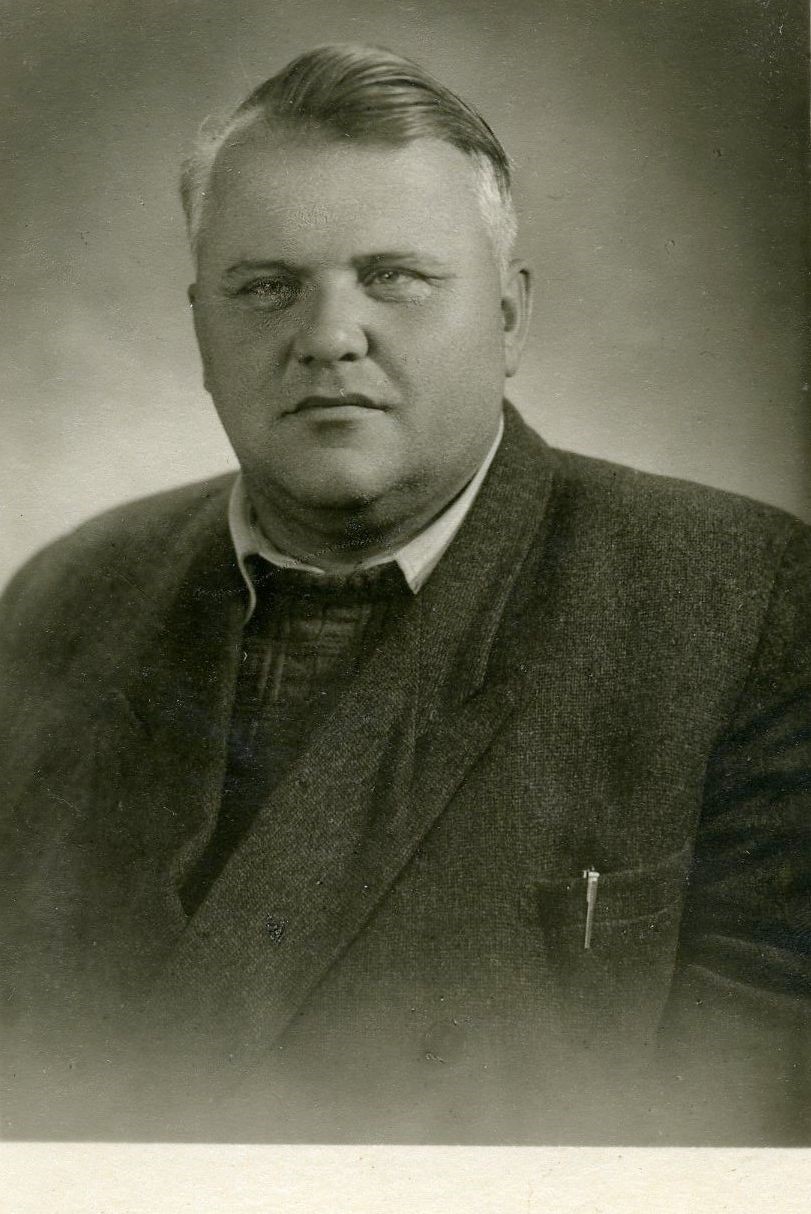






December 16, 1946 – Roberts Neimanis, an ideological coach of the Communist K (b) P CK Party of Ainazi Fish Processing Plant, appoints Arnolds Karins to establish fishermen's fishery co-operative association in accordance with the decision at the fishermen's general assembly on December 15.
January 26, 1947, Minutes No. 1. – The full assembly of members of the Salaca seashore fishermen's trade association of Ainazi City decided unanimously to accept the decision of the board of directors to dissolute the company and establish the fishery co-operative association. The head of the meeting, Arvids Treijs, found that the company was disorganized and the fishery co-operative association was deemed to have been established. Arnolds Karins and his deputy, Janis Krumins, were elected unanimously as a Chairman of the Board and his deputy accordingly.
Summer of 1947 - Brivais Vilnis – it is the name for the Ainazi-Salaca fishery co-operative association that replaced the organisation. / The quote from the 1947 press release.
October 8, 1947 meeting of the Board of Ainazi-Salaca fishery co-operative association, minutes No. 32. The participants: The Chairman of the Board Roberts Neimanis, Karins A., the Deputy of the Chairman of the Board Krumins J., the Members of the Board: Berzins K., Tulls J., Krumins J., Emsis H., Plume A . The report of the Bureau of the Republican Fishermen Union No. 21 was read aloud and informed about Roberts Neimanis appointment as a chairman of the fishery co-operative association.
On October 19, 1947, at the general meeting of the Ainazi-Salaca fishery co-operative association (minutes No. 5) the first question concerned the approval of the chairman of the Ainazi-Salaca fishery co-operative association. The chairman of the Audit Commission Mr. Berzins pointed out that the chairman cannot be approved, but elected in accordance with the articles of association. Alexander Plume suggested to make amendments to the agenda of the first day of the meeting and to consider the possibility to re-elect the Board. The meeting decided to leave paragraph 1 open.
October 26, 1947, Minutes No. 6. – the general meeting, 88 members were taking part. A representative of the Union of Fishermen ... put forward not to re-elect the Board of Directors, but to re-elect the Chairman of the Board. Following such a proposal, the following members resigned from the board: Krumins Janis, Berzins Karlis, Plume Aleksandrs and Tulls Jekabs. Mr. Treijs, the leader of the meeting recognised that the board was to be re-elected ...
The candidate for the position of the chairman of the board is appointed comrade Neimanis Roberts. 71 votes were given to Mr. Neimanis. So Neimanis Roberts was elected as a chairman of the board.
The Meeting of the Board of Ainazi-Salaca fishery co-operative association on March 20, 1948, minutes No. 8. Member Neimanis reported that there was an issue of how to divide the Ainazi-Salaca fishery co-operative association into two parts and that such issue was discussed in Riga, and then there would be the separate Kuivizi-Ainazi fishery co-operative association and Salacgriva, Svetciems, Vitrupe would now remain in the current fishery co-operative association.
The division into the fishery co-operative associations Brivais Vilnis and Enkurs
December 19, 1948 – At the general meeting of Ainaži - Kuivizu fishery co-operative association, a decision to separate from the Ainazi-Salacgriva fishery co-operative association was made by establishing an independent Kuivizi fishery co-operative association ENKURS.
January 30, 1949 – General Meeting of the brigades of Salacgriva, Svetciems and Vitrupe (minutes No. 1). The meeting was open by Neimains Roberts, the chairman of the Board of fishery co-operative association. ... By unanimous vote, the meeting confirmed the statutes and named the fishery co-operative association BRIVAIS VILNIS. Boris Jirgensons was elected as the chairman of the fishery co-operative association by the closed ballot by 46 votes in favour and 23 against. Karins Arnold received 25 votes in favour, 43 votes against.
February 6, 1949 – the last general meeting of Ainazi-Salacgriva fishery co-operative association. The meeting is opened by Neimanis Roberts. Only 143 of the total number of members that amounted to 185 arrived to the meeting. A decision to abolish the Ainazi-Salacgriva fishery co-operative association was reached on April 1, 1949.
A statement of acceptance-transfer regarding the distribution of the balance of Ainazi-Salacgriva fishery co-operative association for April 1, 1949, between the newly created arcs ENKURS and BRIVAIS VILNIS was prepared in Salacgriva, at 7 Juras Street on April 20, 1949.
The composition of the participants was as follows: the chairman of the newly created fishery co-operative association Enkurs Neimanis Roberts the son of Janis, an accountant Gaujamalietis Peteris the son of Augusts and the secretary Tazan Dzidra the daughter of Jekabs. As to the newly created fishery co-operative association Brivais Vilnis the chairman – Jirgenson Boris the son of Augusts, an accountant Malinovska Hilda the daughter of Julijs and an accountant-manager Zorijs Atis the son of Karlis.
Fishery co-operative association Briva Kaija (Tuja) merging with the fishery co-operative association Brivais Vilnis
On November 20, 1962 (the minutes of the general meeting No 1 of 20.11.62), the fishery co-operative association Briva Kaija of the fishermen village Liepupe Limbazi District was abolished and merged with the fishery co-operative association Brivais Vilnis.
The merging of Enkurs and Brivais Vilnis fishery co-operative associations
December 27, 1974 - the joint plenipotentiary meeting of the kolkhoz Enkurs and Brivais Vilnis, in which 92 of Salacgriva's 107 and where 46 of the 54 Kuivizi authorized representatives arrived and decided:
1. The merging process completed on January 1, 1975 ...
2. To commence a joint economic activity in the combined holding starting from January 1, 1975, approving the name of the Salacgriva Fishermen's Collective Farm Brivais Vilnis.
3. To instruct the new collective management of the company to take measures for the commencement of economic activity.